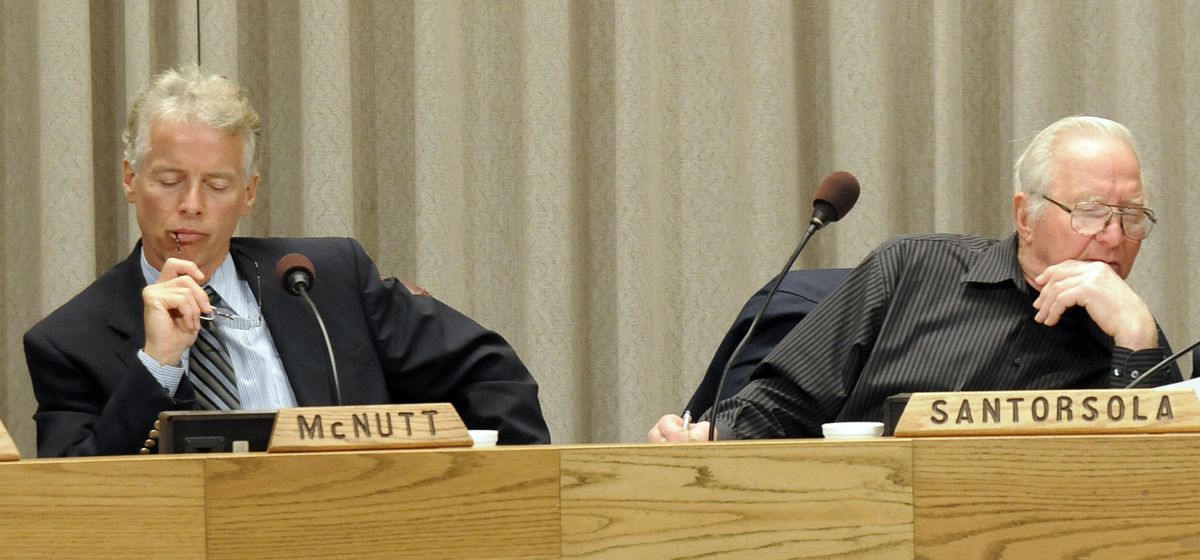Unenforced tobacco ban in Spokane parks remains, for now

A two-week-old ban on tobacco products in Spokane parks will remain in place as officials reconsider the prohibition.
The Spokane Park Board, which voted unanimously last month to impose the ban, on Thursday decided to take a closer look at whether the new regulations should be loosened or modified. It was unclear how long that might take, though.
Among the issues to be examined is whether the new prohibition could be merged with a 2004 policy that created tobacco-free zones in city parks.
“We thought, well, instead of trying to create a whole brand-new one … let’s go back and see if we should not incorporate it into the one that’s already been approved,” said Park Director Barry Russell.
Although the ban approved last month remains in effect, it’s unlikely to be enforced until it has been reviewed and “no smoking” signs are posted, officials said. Russell noted that the policy says the ban will first be enforced at Riverfront Park and that it won’t be enforced elsewhere until it’s fully implemented there.
“It could be one or two years before we move out of phase one, because we want to make sure we get it right,” Russell said.
Under the new ban, all tobacco products are banned from all city parkland except on golf courses and during “major festivals or events” when separate smoking areas would be allowed. The policy says after the prohibition is fully implemented in parks, it will be considered for golf courses.
There’s no penalty for disregarding the regulation, though violators could be asked to leave by park staff. Officials say simple postings of no smoking signs should be enough to greatly reduce smoking.
Although the 2004 partial ban, which affects swimming pools, playgrounds and picnic shelters, is supposed to be enforced by police, the new regulation says it will be enforced by “friendly reminders” from park staff.
Dr. Dennis Biggs, a retired Spokane Veterans Affairs Medical Center physician, said he noticed a drastic reduction in littered butts in and around playgrounds after signs were posted following the 2004 partial smoking ban. He believes new signs would have the same effect throughout parks.
“It’s a bad example for children to have adults smoking on public property,” Biggs said, adding that he wouldn’t be opposed to designated smoking areas.
“The more that kids see adults smoking, the more of a tendency they’ll have to take it up themselves.”
But some smokers say the policy infringes on their rights as citizens and taxpayers.
“If you’re outside, it really shouldn’t make a difference,” said Spokane resident Jason Davis, between puffs of a cigarette while walking through Riverfront Park. “It seems like kind of a form of discrimination.”
Matt Hernandez, a Spokane resident visiting Riverfront Park during his lunch break, questioned the point of the regulation, given the lack of resources the city has to enforce it.
“Is it just a symbolic gesture to make people feel good?” said Hernandez, who doesn’t smoke. “It’s a waste of taxpayer time and money.”
Spokane resident Melissa Halpin suggested at Thursday’s Park Board hearing on the topic that the park system could address the cigarette litter problem by creating a program in which children could earn 1 cent each for every collected cigarette butt.
“I don’t think government has a say in reducing our freedoms,” said Halpin, who works for the city’s engineering services department.
Others say banning tobacco in parks is a minor inconvenience for smokers that could create great benefits to younger generations.
“It’s a family area, and smoking shouldn’t be allowed,” said Paula Craig, a smoker who was visiting Riverfront Park on Thursday with her son, daughter-in-law and grandson. Smoking at parks is “just setting a bad example for younger people.”
Former County Commissioner John Roskelley, who tried unsuccessfully to ban smoking at the county fairgrounds, said the smoking ban should be extended to golf courses, even if a broader ban would be difficult politically.
“No one who doesn’t smoke should have to breathe that foul air,” Roskelley said.
“It’s one thing to put the hammer on kids and other types of people at Riverfront Park who really don’t have a voice. It’s another thing to implement a ban on golf courses where there are a lot more influential people.”